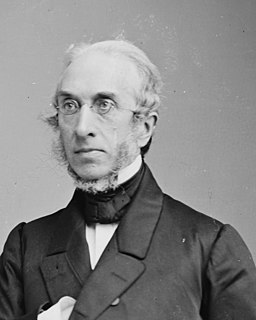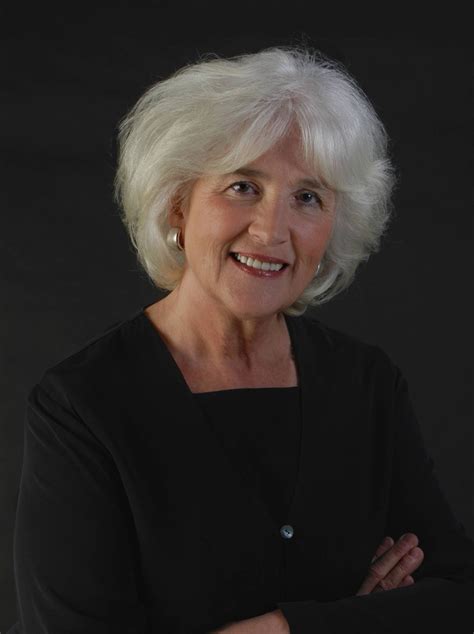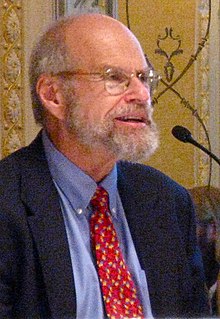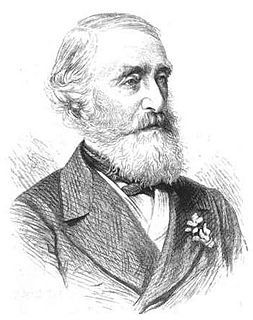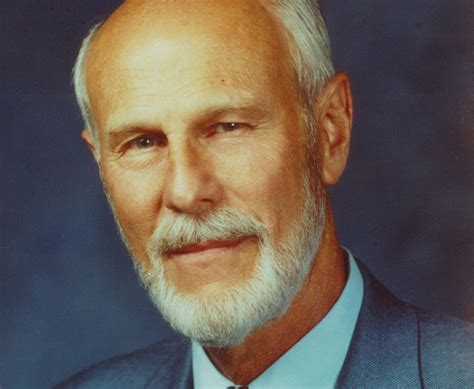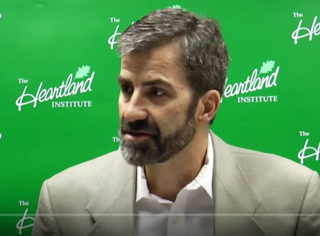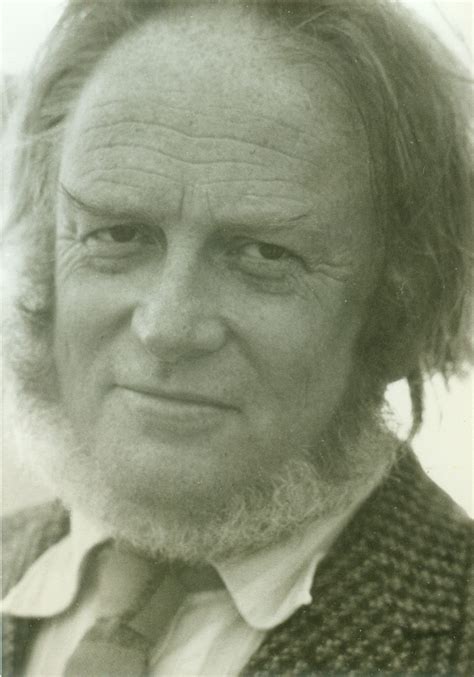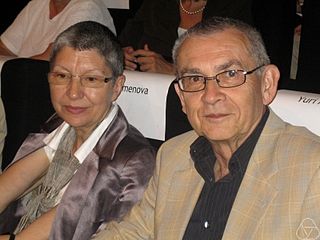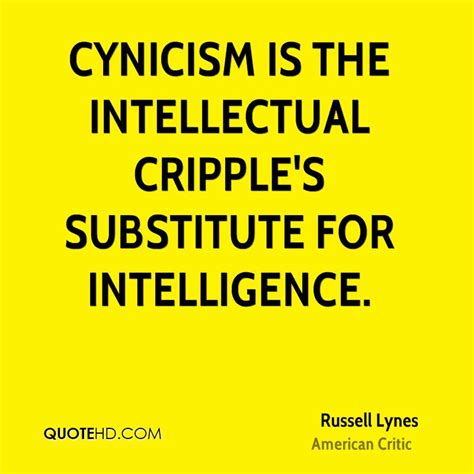Top 689 Seemingly Quotes & Sayings - Page 11
Explore popular Seemingly quotes.
Last updated on December 25, 2024.
Documentary photography is becoming more illustrative as people become more familiar with photography’s limitations and vulnerabilities. Reality has always been interpreted through layers of manipulation, abstraction, and intervention. But now, it is very much on the surface. I like this honesty about its dishonesty. Every photograph has many truths and none. Photographs are ambiguous, no matter how seemingly scientific they appear to be. They are always subject to an uncontrollable context. This is a tired statement, but worth repeating.
Great are the stars, and man is of no account to them. But man is a fair spirit, whom a star conceived and a star kills. He is greater than those bright blind companies. For though in them there is incalculable potentiality, in him there is achievement, small, but actual. Too soon, seemingly, he comes to his end. But when he is done he will not be nothing, not as though he had never been; for he is eternally a beauty in the eternal form of things.
We have seemingly been divided, limited, because of our ignorance; and we have become as it were the little Mrs. so - and - so and Mr. so - and - so. But all nature is giving this delusion the lie every moment. I am not that little man or little woman cut off from all else; I am the one universal existence. The soul in its own majesty is rising up every moment and declaring its own intrinsic Divinity.
We need to reshape the movement as one of grassroots activists, and not 'professional activists' who populate the seemingly endless number of national animal rights groups. For many people, activism has become writing a check to a national group that is very pleased to have you leave it to them. Although it is important to give financial support to worthy efforts only, giving money is not enough and giving to the wrong groups can actually do more harm than good.
My favorite method of encryption is chunking revolutionary documents inside a mess of JPEG or MP3 code and emailing it off as an "image" or a "song." But besides functionality, code also possesses literary value. If we frame that code and read it through the lens of literary criticism, we will find that the past hundred years of modernist and postmodernist writing have demonstrated the artistic value of similar seemingly arbitrary arrangements of letters.
Faith lived in the incognito is one which is located outside the criticism coming from society , from politics , from history , for the very reason that it has itself the vocation to be a source of criticism. It is faith (lived in the incognito) which triggers the issues for the others, which causes everything seemingly established to be placed in doubt , which drives a wedge into the world of false assurances.
The amazing thing is that throughout Scripture and history it seems God has chosen the most seemingly unlikely and unqualified people to fulfill his plan and purpose on the earth. Most often, the response of those people has been to insist on their own unworthiness. And if they don’t-the people around them may do so, loudly and shrilly. And therein lies a danger: If we allow other people to tell us what we are and are not qualified to do, we will limit what God wants to do with us.
We risk great peril if we kill off this spirit of adventure, for we cannot predict how and in what seemingly unrelated fields it will manifest itself. A nation that loses its forward thrust is in danger, and one of the most effective ways to retain that thrust is to keep exploring possibilities. The sense of exploration is intimately bound up with human resolve, and for a nation to believe that it is still committed to a forward motion is to ensure its continuance.
Without Virginia, as we must all acknowledge--without her Patrick Henry among the people, her Lees and Jefferson in the forum, and her Washington in the field--I will not say that the cause of American liberty and American independence must have been ultimately defeated--no, no, there was no ultimate defeat for that cause in the decrees of the Most High; but it must have been delayed, postponed, perplexed, and to many eyes and hearts rendered seemingly hopeless.
I wanted to create a believable feeling for 18th Century reality in the Perfume: The Story Of A Murderer. I didn't want this typical film feel of strange people in strange costumes, not really knowing what to do or how to move. If you put an 18th Century costume on Alan Rickman, it looks like he's been wearing it forever because he inhabits the stuff. He is a character that can really travel in time as an actor and transform into this 18th Century person with seemingly no effort.
I'm not sure if Cupitt himself still uses this term, but it's useful in suggesting that, actually, there are more choices than the choice between nihilism and faith. In fact, the issue may not be faith as such but the fact that for millennia, Christianity has buttressed itself with a particular kind of metaphysics that has now seemingly reached the end of its life-span. But perhaps Buddhist metaphysics could provide an alternative here - or, at least, offer a direction of travel.
The greatest part of each day, each year, each lifetime is made up of small, seemingly insignificant moments. Those moments may becooking dinner...relaxing on the porch with your own thoughts after the kids are in bed, playing catch with a child before dinner, speaking out against a distasteful joke, driving to the recycling center with a week's newspapers. But they are not insignificant, especially when these moments are models for kids.
This church was open and seemingly unattended, and it was a throwback in another way as well. The candles in the little side altars were real ones, actual wax candles that burned with an open flame. Lots of churches have switched over to electrified altars. You drop your quarter in the slot and a flame-shaped bulb goes on and stays on for your quarter's worth of time. It's like a parking meter, and if you stay too long they tow away your soul.
The fact that we all leave behind seemingly insignificant clues behind ourselves - emotional DNA or what I call Small Data - which are able to describe with an insane accuracy who we really are, our personalities and desires. But even more how we all represents out of balances - perhaps I feel too overweight, feel alone or feel I haven't achieved what I'd hoped for when hitting 40. These imbalances are surprisingly visible when visiting consumers' homes - and surprisingly invisible when relaying on Big Data.
Otter is the most brilliant mix of facts ancient and modern about the otter species and its vulnerability to man's seemingly insatiable need to hunt the poor animal for reasons other than survival. I am sure the book will help to ensure that the hunting of otters will never return to this country-and I hope other lands will follow this example . . . A fascinating and illuminating book.
We cannot see how the evidence afforded by the unquestioned progressive development of organised existence-crowned as it has been by the recent creation of the earth's greatest wonder, MAN, can be set aside, or its seemingly necessary result withheld for a moment. When Mr. Lyell finds, as a witty friend lately reported that there had been found, a silver-spoon in grauwacke, or a locomotive engine in mica-schist, then, but not sooner, shall we enrol ourselves disciples of the Cyclical Theory of Geological formations.
I campaigned for [Barack] Obama for more than a year. I was in Iowa, Minnesota, California, Arizona - just traveling around to help get the word out. It was such a huge, spirited campaign, and so positive. But you travel around to cities in the U.S. now and there's just this hopelessness that has set in. It makes it hard to understand why it seems so impossible to make any kind of progressive change with an administration that is seemingly progressive, or why we keep encountering such political roadblocks to change.
Most of our platitudes notwithstanding, self-deception remains the most difficult deception. The tricks that work on others count for nothing in that very well-lit back alley where one keeps assignation with oneself: no winning smiles will do here, no prettily drawn lists of good intentions. One shuffles flashily but in vain through one's marked cards- the kindness done for the wrong reason, the apparent triumph which involved no real effort, the seemingly heroic act into which one had been shamed.
Any fact facing us, however difficult, even seemingly hopeless, is not so important as our attitude toward that fact. How you think about a fact may defeat you before you ever do anything about it. You may permit a fact to overwhelm you mentally before you deal with it actually. On the other hand, a confident and optimistic thought pattern can overcome or modify the fact altogether.
Having a book is somewhat like having a baby, as many woman writers have observed before me: the conception, the long preparation, the wait, the growing heaviness (not of body in this case but of the spirit and the manuscript) toward the end, the initial delight at the sight of the product, fully formed and seemingly perfect, and then the usual postpartum depression. What will people whose opinion I care about, and those whose views I don't value but have weight in the world of reader, think of it?
I began to research the concept of dimensionality from the point of view of quality, and not just quantity, as a mathematician might do. Taking my clues from the theosophical use made of the Vedantic levels of reality, I identified the western notion of Energy (as someting which is effecatious by means of motion), with the idea of Time. The more comprehensive dimension 'eternity' I defined as a form of energy which is efficacious without motion. In this manner I began to establish the qualities of dimensions and open out the seemingly monolithic concept of energy.
Finally, if life happened by chance on this earth and evolved upward, then it could seemingly happen elsewhere in the universe. But if, as we believe, human life resulted from a purposeful act of God, and if sin is inevitable for such beings, and if the human soul is the prize for which Satan and God do battle, then it hardly makes sense to have this same process repeated on countless other planets throughout the cosmos.
I have been a writer since 1949. I am self-taught. I have no theories about writing that might help others. When I write, I simply become what I seemingly must become. I am six feet two and weigh nearly two hundred pounds and am badly coordinated, except when I swim. All that borrowed meat does the writing. In the water I am beautiful.
Those who make us believe that anything’s possible and fire our imagination over the long haul, are often the ones who have survived the bleakest of circumstances. The men and women who have every reason to despair, but don’t, may have the most to teach us, not only about how to hold true to our beliefs, but about how such a life can bring about seemingly impossible social change.
The last word in ignorance is the man who says of an animal or plant, "What good is it?" If the land mechanism as a whole is good, then every part is good, whether we understand it or not. If the biota, in the course of aeons, has built something we like but do not understand, then who but a fool would discard seemingly useless parts? To keep every cog and wheel is the first precaution of intelligent tinkering.
How could two teams of scientists come to such obviously contradictory conclusions on seemingly every point that matters in the debate over global warming? There are many reasons why scientists disagree, the subject, by the way, of an excellent book a couple years ago titled Wrong by David H. Freedman. A big reason is IPCC is producing what academics call "post-normal science" while NIPCC is producing old-fashioned "real science.
The weeds of a seemingly learned and brilliant but actually trivial and empty philosophy of Nature which, after having been replaced some 50 years ago by the exact sciences, is now once more dug up by pseudo scientists from the lumber room of human fallacies, and like a trollop, newly attired in elegant dress and make-up, is smuggled into respectable company, to which she does not belong.
My existence is such that "I" do not really exist. At the end of understanding so much I understand that I know nothing. I suffer for being surrounded by intense suffering and yet I'm deeply suspicious if first of all there is indeed any consciousness except me. I strive to find the artist who might have fathered this great universal art but feel myself to be too feeble to accomplish this seemingly unattainable mission. Yet I have every respect for life, and it is this sheer respect that makes me live.
There's a tree that grows in Brooklyn. Some people call it the Tree of Heaven. No matter where its seed falls, it makes a tree which struggles to reach the sky. It grows in boarded-up lots and out of neglected rubbish heaps. It grows up out of cellar gratings. It is the only tree that grows out of cement. It grows lushly . . . survives without sun, water, and seemingly without earth. It would be considered beautiful except that there are too many of it.
What I had thought were signs of a broken educational system - the seemingly random placement of commas, the spastic syntax, the obnoxious overuse of quotation marks, the goofy misspelling of 'Jouralism' - were actually signs of the New Instantaneousness. 'Instant Jouralists' cannot be concerned with punctuation and grammar and spelling. That stuff just 'slows you down.' To be an 'Instant Jouralist,' you have to write as if you were being pursued by a cheetah across the Serengeti.
This moment, this being, is the thing. My life is all life in little. The moon, the planets, pass around my heart. The sun, now hidden by the round bulk of this earth, shines into me, and in me as well. The gods and the angels both good and bad are like the hairs of my own head, seemingly numberless, and growing from within. I people the cosmos from myself, it seems, yet what am I? A puff of dust, or a brief coughing spell, with emptiness and silence to follow.
Nobody could catch cold by the sea; nobody wanted appetite by the sea; nobody wanted spirits; nobody wanted strength. Sea air was healing, softening, relaxing - fortifying and bracing - seemingly just as was wanted - sometimes one, sometimes the other. If the sea breeze failed, the seabath was the certain corrective; and where bathing disagreed, the sea air alone was evidently designed by nature for the cure.
Each family prayer, each episode of family scripture study, and each family home evening is a brushstroke on the canvas of our souls. No one event may appear to be very impressive or memorable. But just as the yellow and gold and brown strokes of paint complement each other and produce an impressive masterpiece, so our consistency in doing seemingly small things can lead to significant spiritual results.
As for the ethics, law, and politics relationship, there has always been a tension for me as I try to keep them distinct while recognizing their interactions. A valuable contribution to my thinking there and elsewhere was Ellen Meiksins Wood's Mind and Politics, which reinforced for me the ways in which seemingly disparate philosophical endeavors were/are interconnected, and although I have tended to give a certain priority to ethical considerations as part of practical reasoning, I am reminded often enough that this position makes some contentious presumptions .
The private experience that you perceive forms your world, period. But which world do you inhabit? For if you altered your private sensations of reality, then that world, seemingly the only one, would also change. You do go through transformations of beliefs all the time, and your perception of the world is different. You seem to be, no longer, the person you that you were. You are quite correct — you are not the person that you were, and your world has changed, and not just symbolically.
Ever since the beginning of modern science, the best minds have recognized that "the range of acknowledged ignorance will grow with the advance of science." Unfortunately, the popular effect of this scientific advance has been a belief, seemingly shared by many scientists, that the range of our ignorance is steadily diminishing and that we can therefore aim at more comprehensive and deliberate control of all human activities. It is for this reason that those intoxicated by the advance of knowledge so often become the enemies of freedom.
Relativity was a highly technical new theory that gave new meanings to familiar concepts and even to the nature of the theory itself. The general public looked upon relativity as indicative of the seemingly incomprehensible modern era, educated scientists despaired of ever understanding what Einstein had done, and political ideologues used the new theory to exploit public fears and anxieties-all of which opened a rift between science and the broader culture that continues to expand today.
The seemingly insuperable difficulties of deep-space travel suggest an intention to keep us fixed at home in our own solar system, and the physical nature of our part of the Universe, as well as the basic rules of physics and chemistry, have a warning look about them, like barriers designed to isolate intelligent life. This means that for us, unlike the situation for humble microorganisms, deep-space travel is probably a stark impossibility.
As you learn to consciously observe the transformation process, you will watch yourself repeating a lot of old patterns long after you seemingly know better. Spiritually and intellectually, you realize there is another way, but emotionally you are still clinging to the old habits. This is a difficult time. Try to be patient and compassionate with yourself. When you recognize the futility of an old pattern so clearly, it's about to change! A short time later, you will suddenly begin to respond differently, in a more positive way.
You may be going through a trial so overwhelming that it's borderline unbearable. You want to see the end of the tunnel. Which is only natural, because once we see that little speck of light, we feel we can make it through to the finish. But God's tunnels are often twisting, too complex and dark to see the light for many days. In such settings He says, "In that dark, twisting, seemingly endless period of time, trust Me. Stop running scared! Stop fearing!"
The Constitution and the Bill of Rights we designed to get the government off the backs of the people -- all the people. Those great documents guarantee to us all the rights to personal and spiritual self-fulfillment. But that guarantee is not self-executing. As nightfall does not come all at once, neither does oppression. In both instances, there is a twilight when everything remains seemingly unchanged. And it is in such a twilight that we all must be most aware of the change in the air -- however slight -- lest we become unwitting victims of the darkness.
To deny the possibility, nay, the actual existence of witchcraft and sorcery, is at once flatly to contradict the revealed word of God in various passages both of the Old and New Testament, and the thing itself is a Truth to which every nation in the world hath, in its turn, borne testimony, by either example seemingly well attested or by prohibitory laws, which at least suppose the possibility of a commerce with evil spirits.
And most of all, it means continually drawing connections among these seemingly disparate struggles—asserting, for instance, that the logic that would cut pensions, food stamps, and health care before increasing taxes on the rich is the same logic that would blast the bedrock of the earth to get the last vapors of gas and the last drops of oil before making the shift to renewable energy.
I'm sure that in the fullness of time we'll learn that one or more of these seemingly promising technologies were dead ends. And that's the nature of innovation, and that's why we should spread our bets; we should not put our eggs in any one basket. Some of these will be grand successes, some of them will be average, and some of them will be abject failures.
America could carry on a two years' war by the confiscation of the property of disaffected persons, and be made happy by their expulsion. Say not that this is revenge, call it rather the soft resentment of a suffering people, who, having no object in view but the good of all, have staked their own all upon a seemingly doubtful event. Yet it is folly to argue against determined hardness; eloquence may strike the ear, and the language of sorrow draw forth the tear of compassion, but nothing can reach the heart that is steeled with prejudice.
Of the properties of mathematics, as a language, the most peculiar one is that by playing formal games with an input mathematical text, one can get an output text which seemingly carries new knowledge. The basic examples are furnished by scientific or technological calculations: general laws plus initial conditions produce predictions, often only after time-consuming and computer-aided work. One can say that the input contains an implicit knowledge which is thereby made explicit.
Now the same mystery which often veils from our eyes the reason for a catastrophe envelops just as frequently, when love is in question, the suddenness of certain happy solutions, such as had been brought to me by Gilberte's letter. Happy, or at least seemingly happy, for there are few that can really be happy when we are dealing with a sentiment of such a kind that any satisfaction we can give it does no more, as a rule, than dislodge some pain. And yet sometimes a respite is granted us, and we have for a little while the illusion of being healed.
For the most part we humans live with the false impression of security and a feeling of being at home in a seemingly familiar and trustworthily physical and human environment. But when the expected course of everyday life is interrupted, we realize that we are like shipwrecked people trying to keep their balance on a miserable plank in the open sea, having forgotten where they came from and not knowing whether they are drifting. But once we fully accept this, life becomes easier and there is no longer any disappointment.
While no one wishes to incur losses, you couldn't prove it from an examination of the behavior of most investors and speculators. The speculative urge that lies within most of us is strong; the prospect of a free lunch can be compelling, especially when others have already seemingly partaken. It can be hard to concentrate on potential losses while others are greedily reaching for gains and your broker is on the phone offering shares in the latest "hot" initial public offering. Yet the avoidance of loss is the surest way to ensure a profitable outcome.
It will be hard for you not to ask why this must be. God knows why, and that may be as good to us as though we knew a thousand reasons. I pray God to hold you quiet and patient and uncomplaining, and help you bear the weight of this seemingly unintelligible sorrow. I hope you will remember that this is the only world in which a Christian can suffer, and suffer patiently and meekly. We cannot suffer by and by. God helps us to glorify Him now, when we can.
I've become a collector of stories about unlikely returns: the sudden reappearance of the long-lost son, the father found, the lovers reunited after forty years. Once in awhile, a letter does fall behind a post office desk and lie there for years before it's finally discovered and delivered to the rightful address. The seemingly brain-dead sometimes wake up and start talking. I'm always on the lookout for proof that what is done can sometimes be undone.
we are continually overflowing toward those who preceded us, toward our origin, and toward those who seemingly come after us. ... It is our task to imprint this temporary, perishable earth into ourselves so deeply, so painfully and passionately, that its essence can rise again “invisibly,” inside us. We are the bees of the invisible. We wildly collect the honey of the visible, to store it in the great golden hive of the invisible.
Improvisation was the blood and bone of jazz, and in the classic, New Orleans jazz it was collective improvisation in which each performer, seemingly going his own melodic way, played in harmony, dissonance, or counterpoint with the improvisations of his colleagues. Quite unlike ragtime, which was written down in many cases by its composers and could be repeated note for note (if not expression for expression) by others, jazz was a performer's not a composer's art.
Courage is finding the inner strength and bravery required when confronting danger, difficulty, or opposition. Courage is the energy current behind all great actions and the spark that ignites the initial baby steps of growth. It resides deep within each of us, ready to be accessed in those moments when you need to forge ahead or break through seemingly insurmountable barriers. It is the intangible force that propels you forward on your journey.
In the United States we have concentrated tremendous sums of money on the educational plant, seemingly with the idea that the right number of buildings will turn out the right number of graduates. Yet the teachers who actually instruct the future citizens of our country are more often than not miserably paid. If in the future we find ourselves with a lot of fourth-rate citizens, we have only ourselves to blame.
I was in the fantasy. I was selling myself on the fantasy as I was doing it. It never occurred to me. I did take notes, but just because I am a writer. I've been a writer since I was five. You don't have any sort of outlandish, shocking, extraordinary, horrifying experience without writing it down, because I know and knew that you forget things. No matter how outrageous and amazing and extraordinary and seemingly unforgettable an experience is, it's kind of like a dream. It will erode inevitably, for me.
Live as though you don't exist; like you are two eyeballs floating in space with nothing behind them. No brain attached. Not even hair - Nothing.There is a place inside your own heart, inside your own being that knows the kind of seemingly foolish things I speak and it is totally thrilled to be reminded of this infinite expanse and infinite joy that it is. Find this place.
Let a man choose what condition he will, and let him accumulate around him all the goods and gratifications seemingly calculated to make him happy in it; if that man is left at any time without occupation or amusement, and reflects on what he is, the meagre, languid felicity of his present lot will not bear him up. He will turn necessarily to gloomy anticipations of the future; and unless his occupation calls him out of himself, he is inevitably wretched.









